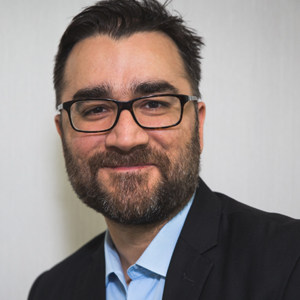"The key for investors is to identify investment talent who can generate strong investment sustainably over time."
Private equity (PE) is becoming increasingly important in the Gulf Co-operation Council (GCC) in light of recent intensified economic diversification and development efforts. It is emerging as a relatively new asset class in the region, with interest in "growth capital" rather than the more traditional "buy out" PE has seen in the developed markets of the UAE and Western Europe, in which fund managers take a majority stake. Indeed, venture capital (VC) has seen a surge of fundraising following the success of the region's VC unicorns, such as Careem, and the purchase of Souq.com by Amazon.
Private equity can play an important role in driving economic growth. Factors, like the region's increasing wealth, recent important economic reforms and regional governments' strong initiatives to strengthen local entrepreneurship and promote small to medium-sized enterprises, make it highly attractive for PE investments.
Governments in the region are attempting to foster further growth in VC by creating incubators and regional hubs with reduced regulations to encourage entrepreneurs to set up in the region. These efforts will ultimately drive sustainable economic growth, greater prosperity, and more highly skilled jobs.
However, following the highly publicized case of Abraaj Group,1 the industry is calling for more robust corporate governance in the region. Local PE managers are facing far greater scrutiny as investors are starting to pay more attention to how their funds are handled.
Regional investors are asking for a better understanding in gauging the performance of private markets. Buyers and investors want to base their decisions to enter the PE market on proven and tested information, considering factors like past performance and doing their due diligence on investment and operations.
While measuring the absolute and relative performance of private markets is critical, it is significantly nuanced. As "value creation" is an important aspect in the private equity story, measurement should be not only accurate but also meaningful.
As with all investments, evaluating past performance is always a factor when deciding whether or not to include private equity within the overall asset allocation of a portfolio. However, PE investors must look deeper to determine a Fund's true performance, through rigorous due diligence. A combination of metrics and qualitative measures are important for providing a holistic understanding of the Fund's track record and its future performance potential.
In terms of quantitative metrics, the three most commonly used ones are Internal Rate of Return (IRR), Total Value to Paid (TVPI) ratio and Distributed to Paid-In (DPI) ratio.
IRR is the most widely cited metric for measuring the performance of a private market investment. This is a time-based measurement which takes into account the investment made and acquired over a period of time. The longer an investment takes to mature (or sell at a given price), the more a given annualized IRR will fall.
The second measure, TVPI, considers the total of how much value is received from investments (through dividends and a sale at the end), compared to the initial investment made. The final measure is the DPI ratio, which measures how much of the initial capital is returned (through dividends or other payments) compared to how much was invested initially. DPI is a barometer of realized value, not total value.
All three of these metrics play an important role in helping investors evaluate a private equity fund's historical performance. While there is no single answer for comprehensively and accurately assessing the performance of a private equity fund, these metrics when employed together can help get a better understanding of it.
Gauging past performance of a fund doesn't tell you much about the performance of the next private equity fund. These commitments have a long life, and it is, therefore, necessary to consider other investment related factors. They could include the stability of the investment team, looking at how the investment team sources deals or how they create value at their portfolio companies.
Following the Abraaj case, assessing managers and back office operations have become an essential measure of due diligence. Effective internal controls, strong systems and a well-staffed operations team are also critical for a private equity fund to succeed.
Measuring private market performance is certainly more complicated than measuring public market performance. It requires a clear view of relevant metrics and methodologies, is informed through multiple perspectives and demands specificity of analysis. Additionally, it can be subjective, prone to manipulation and ultimately represents an imperfect assessment of the success of a private market investment. However, private market performance measurement is likely to continue to evolve, thereby improving its current shortcomings.
The key for investors is to identify investment talent who can generate strong investment sustainably over time. While past performance is useful in evaluating a managers' historical track record, it won't guarantee future results. Hence, an investor needs to undertake deep "qualitative" investment with operational due diligence together to assess the likelihood of future investment success.
To learn more about how Mercer can help you with your investment strategies, click here.
1 Ramady, Mohamed, "Abraaj Capital: The Rise and Fall of a Middle East Star," Al Arabiya, July 3, 2018,https://english.alarabiya.net/en/views/news/middle-east/2018/07/03/Abraaj-Capital-The-rise-and-fall-of-a-Middle-East-star.html#.











